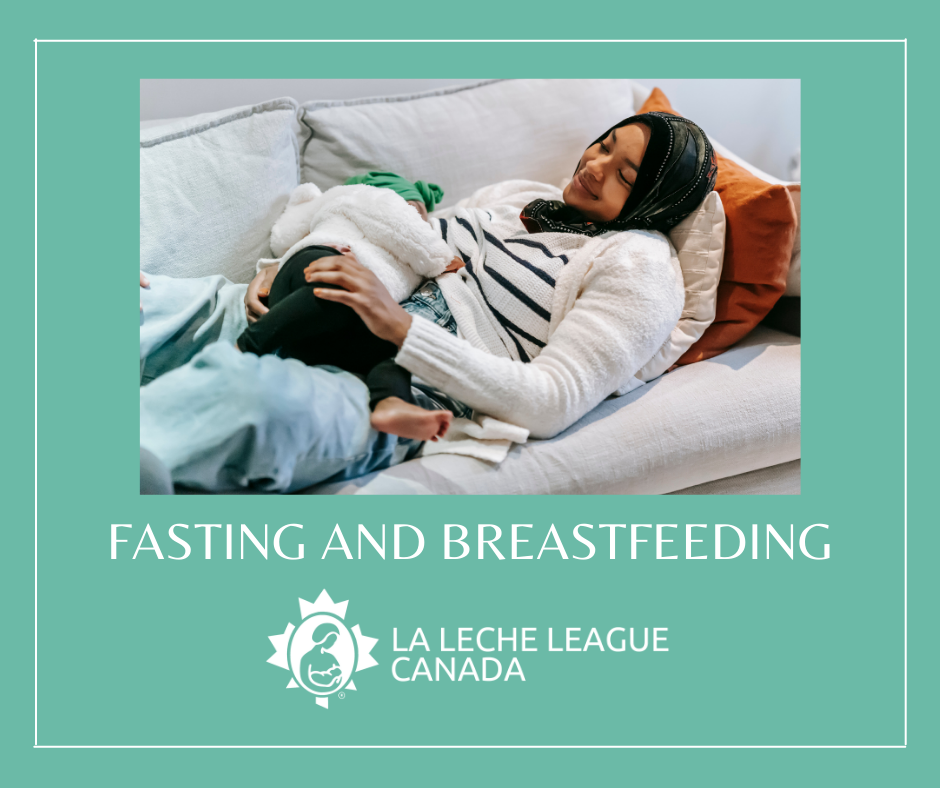
Fasting (abstaining from food or fluids or both for a period of time) is an idea that goes far back in history and is practiced by people of many religions. Different faith groups have different rules about fasting. Most religious laws regarding fasting exclude pregnant and breastfeeding women out of respect for the health of the mother and her baby or fetus. However the interpretation of these laws may vary from community to community or from family to family. Nursing parents may also wish to fast from time to time for other reasons.
Breastfeeding research in countries facing famine conditions suggests that short periods of decreased caloric intake does not decrease milk supply. Instead energy and nutrients can be drawn from the body’s stores laid down during pregnancy. Healthy well-nourished mothers produce normal quantities of breastmilk when faced with a short-term caloric intake reduction.
Israeli research into milk composition and babies’ behaviour during the 24-hour Yom Kippur fast showed that the composition of the breastmilk changed. It was higher in sodium, calcium and protein; and lower in phosphorus and lactose. The research only followed the mothers for 24 hours after the fast ended at which time there were still slight changes in milk composition.
The Ramadan fasting period is 30 days long. Studies have followed Muslim mothers to see if a longer period of abstinence from food and drink during daylight hours would affect milk production and maternal nutritional health. They found that during Ramadan, energy and nutrient intake levels were generally below the daily allowances considered necessary for lactating women. However, overall there was no effect on the nutrient levels in the breastmilk of these women and no significant effect on the growth of their infants.
Some mothers who are fasting for longer periods choose to “super-hydrate” overnight with a goal of decreasing their daytime dehydration. There are some concerns that significant overconsumption of water can cause electrolyte imbalances. If you are considering trying this it would be wise to discuss this idea with a health professional. Significant hyper-hydration and dehydration can both cause a decrease in milk supply.
During a period of fasting, your baby may want to nurse more often or may seem fussier than usual. This may be related to the fasting itself or a reaction to other changes in the daily routine that go along with the fasting period.
Please consider supporting LLLC.
Updated 2022
